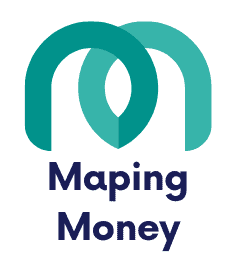250 Money Saving Tips – 3 Essential Strategies for Everyday Savings
To maximize your savings, focus on three essential strategies. First, track your everyday expenses. Use budgeting apps to categorize spending and set limits for each category. Next, optimize grocery shopping by choosing discount stores and using coupon apps for additional savings, often up to 20%. Finally, improve your travel expenses by booking flights during off-peak times and utilizing price comparison tools like Google Flights. These tactics not only cut costs but also enhance your financial awareness. Stick with it, and you'll uncover even more strategies to boost your savings.
Key Takeaways
- Implement expense tracking to identify spending habits and adjust budgets for effective savings.
- Utilize loyalty programs and cashback offers to maximize rewards from everyday purchases.
- Shop around for competitive insurance rates and bundle policies to save on premiums.
- Take advantage of off-peak travel discounts and frequent flyer programs for significant travel savings.
- Regularly review and compare Medicare plans to ensure cost-effective healthcare coverage options.
Travel Savings Strategies

Traveling can be an exhilarating experience, but it often comes with a hefty price tag. To make the most of your adventures without breaking the bank, you'll want to implement some effective travel savings strategies. First, consider traveling during off-peak seasons. You could save money on business class fares, sometimes up to 50% compared to peak prices.
Next, utilize Google Flights to compare ticket prices across different airlines. Set alerts for flash sales, so you can snag the best deals on airfare and save time searching endlessly. Don't forget to leverage frequent flyer points and loyalty programs. They can help you earn extra cash rewards, potentially adding up to $425 annually.
Lastly, explore package deals that combine flights and hotels. This often leads to additional savings compared to booking everything separately. Also, check alternative airports for better rates; flying into less popular locations might greatly lower your overall travel costs. By following these strategies, you'll not only save money but also have more freedom to enjoy your trips without financial stress. Happy travels!
Identity Theft Protection Tips
While exploring new destinations can be thrilling, protecting yourself from identity theft is just as important as planning your trip. Your financial savings depend on maintaining your security. Regularly monitor your financial accounts for unusual activity; prompt detection can minimize the impact of identity theft. Strong passwords and two-factor authentication on all accounts greatly enhance your security, helping you save time and stress in the long run.
Consider investing in identity theft protection services. These can offer thorough monitoring and recovery assistance, potentially saving you money if an unexpected home or financial breach occurs. Educate yourself about common phishing scams and fraudulent schemes; being aware can reduce your risk of falling victim.
Don't forget to utilize soft credit checks to keep an eye on your credit report without negatively affecting your score. This proactive approach allows you to stay informed about any suspicious changes that could impact your financial future. By taking these steps, you can enjoy your adventures without worrying about identity theft, ultimately protecting your credit score and ensuring your financial well-being.
Healthcare and Medicare Planning

Maneuvering the complexities of healthcare and Medicare planning is essential for guaranteeing you receive the benefits you need without overspending. With major changes expected in Medicare plans by 2025, it's critical to stay informed about potential benefits and eligibility requirements. Shopping around for competitive Medigap plans can lead to considerable savings on supplemental health coverage, allowing you to keep more money in your savings account.
Don't forget to compare Medicare Part D plans, as finding the best prescription drug coverage at the lowest cost is essential for your overall healthcare budget. You might also want to explore Medicare Advantage plans, which can offer additional benefits like vision and dental coverage—these perks can greatly enhance your healthcare savings.
Regularly reviewing and reassessing your healthcare needs guarantees you choose the most cost-effective Medicare options available to you. Consulting a financial advisor can also provide valuable insights into maneuvering your options, helping you make informed decisions that fit your lifestyle. By taking these proactive steps, you'll gain the freedom to enjoy life while guaranteeing your healthcare needs are met without breaking the bank.
Smart Investment Approaches
Investing wisely can greatly enhance your financial future, and with the right strategies, you can maximize returns while minimizing risks. Start by considering Treasury accounts, which offer yields up to 4.55% with tax advantages, providing a low-risk investment option for your savings. This can be a solid foundation as you work toward achieving your savings goals.
Next, explore Exchange-Traded Funds (ETFs). They allow for diversified investments with lower expense ratios compared to mutual funds, making them a cost-effective choice for your investment portfolio. This diversification can help you weather market fluctuations and reduce risks.
Don't overlook dividend stocks, either. They provide passive income through regular payouts, enhancing your overall returns while you hold onto them. Furthermore, if you have a 401(k) plan, take advantage of automatic enrollment and employer matching contributions. This can greatly boost your retirement savings over time.
Lastly, regularly review and adjust your investment portfolio to align with your risk tolerance and financial goals. By implementing these smart investment approaches, you'll be on your way to building wealth over time while freeing yourself from the burden of credit card debt.
Credit Card Rewards Optimization

Maximizing your financial benefits isn't just about smart investments; optimizing your credit card rewards can also play a significant role in your overall savings strategy. Start by choosing credit cards with straightforward rewards structures that fit your spending habits. This way, you can maximize cash back or points earned on everyday purchases.
Don't overlook sign-up bonuses! They can offer substantial rewards—sometimes worth hundreds of dollars—when you meet the spending requirements in the specified timeframe. Keep an eye on expiration dates for your points; be proactive in redeeming them to avoid losing potential rewards. Many programs have policies that can lead to point expiration, so stay informed.
If possible, combine points from multiple loyalty programs. This can help you reach redemption thresholds faster and boost your overall rewards value. Regularly review your credit card statements to identify spending categories where you could shift purchases. For instance, groceries, gas, or dining out may have higher cash back percentages. By being mindful of your spending habits, you can easily enhance your credit card rewards and enjoy the financial freedom that comes with them.
Insurance Cost Reduction
Cutting your insurance costs doesn't have to be a formidable task. By taking a proactive approach, you can access significant savings and enjoy more freedom in your budget. Start by regularly reviewing and comparing insurance policies. Shopping around can save you hundreds each year, so don't hesitate to explore your options.
Consider bundling different types of insurance, such as home and auto, which often yields discounts of 10-25% on your monthly premiums. Another smart move is to increase your deductibles; many policyholders see savings of up to 30% by opting for higher deductibles.
Don't forget to take advantage of discounts for safe driving, low mileage, or home security systems. These can lead to even more savings on your auto and homeowners insurance. Finally, assess your insurance needs regularly. By eliminating unnecessary coverage, you can avoid overpaying for policies that no longer align with your life circumstances.
With these strategies, you can effectively reduce your insurance costs and keep more money in your pocket. Embrace the freedom that comes with smart financial choices!
Everyday Expense Tracking

How well do you really know where your money goes each month? Everyday expense tracking is a game-changer for achieving financial freedom. By monitoring your spending, you gain valuable insights into your habits and can pinpoint areas for potential savings. Start by categorizing your expenses—groceries, dining, entertainment—and see where your money's flowing.
Utilizing budgeting apps can make this process easier. These tools automatically categorize transactions and generate spending reports, helping you see which spending categories are inflating your budget with unnecessary items. By setting cash limits for each category, you'll curb overspending and develop disciplined financial habits.
Regularly reviewing your expense tracking is essential. It allows you to adjust your budget and align your spending with your savings goals, ensuring you stay on track with what really matters to you. When you know exactly where your money's going, you can make informed decisions that lead to greater financial freedom. Embrace everyday expense tracking, and watch as you take control of your finances, paving the way for a future where your money works for you, not the other way around.
Home and Utility Savings
Finding ways to trim your home and utility expenses can have a big impact on your overall budget. By focusing on home and utility savings, you can reclaim freedom from high living expenses. Start by implementing energy-efficient appliances; they can reduce your electricity bills by up to 30%. This simple switch not only cuts costs, but also benefits the environment.
Don't forget to unplug devices when they're not in use. Those phantom energy costs can sneak up and account for 5-10% of your total energy bill. For heating and cooling, sealing your windows and doors is a game-changer, potentially saving you up to 20% on costs. A programmable thermostat can also help adjust temperatures automatically, saving you about $180 a year.
Lastly, regularly compare homeowners insurance rates. This can lead to savings of up to $400 annually, ensuring you're not overpaying for coverage. With these savings ideas, you have the power to lower your energy use and enjoy a more financially secure lifestyle. Take action now, and watch your budget flourish!
Grocery Shopping Hacks

When you plan your grocery shopping wisely, you can access a world of savings that greatly impacts your budget. Start by choosing discount grocery stores like Aldi or Costco. They often offer lower prices on essential items compared to traditional outlets, leaving you with more money left in your pocket.
Next, embrace meal prepping. This simple technique not only streamlines your cooking but can also save you an impressive $200 to $300 each month by reducing the temptation to eat out.
Don't forget about generic brands. Opting for these instead of name brands can save you anywhere from $0.50 to $1.00 per item, especially on staples like canned goods and grains.
Timing is key in grocery shopping. Aim to shop midweek, from Tuesday to Thursday, to snag the best discounts as stores often mark down items post-weekend rush.
Lastly, utilize coupon apps and websites to discover exclusive deals. You could save an additional 10% to 20% on your grocery bill each month. Implement these hacks, and you'll find that saving money on groceries is not just possible, but empowering!
Effective Loan Management
Managing your finances goes beyond grocery shopping; effective loan management is key to maintaining a healthy budget. By understanding and taking control of your loans, you can pave the way for a better financial future. Here are three strategies to help you manage your loans more effectively:
- Know Your Loan-to-Value Ratio: Understanding this ratio can help you secure better loan terms, which means lower interest rates and more savings over time.
- Consider Debt Consolidation: Research fixed-rate debt consolidation loans. These can simplify your payments and potentially save you thousands in interest charges, allowing you to make saving a priority.
- Review Your Credit Regularly: Regularly checking your credit report helps you identify errors that could hurt your ability to secure favorable loan terms. Correcting these can lead to better interest rates, enhancing your financial freedom.
Education and Career Investments

Investing in your education and career can greatly enhance your financial well-being. Research shows that individuals with a college degree earn, on average, 65% more than those with only a high school diploma over their lifetime. This highlights the long-term benefits of education investments. However, college expenses can be intimidating. Consider trade schools or professional certificate programs, which typically cost around $33,000—much less than a four-year degree—while still leading to high-paying jobs.
To ease the financial burden of education, explore grants and scholarships. Nearly $15 billion in federal grants are awarded annually, making education more accessible. Additionally, online courses and flexible learning options allow you to upskill or pivot careers without breaking the bank. Many of these courses are available for free or at a fraction of traditional costs.
Don't underestimate the power of ongoing education; investing in continuous learning can lead to a 10-20% increase in salary potential. By making strategic education investments, you're not just saving money; you're paving the way for greater financial freedom and career advancement. Embrace these opportunities, and watch your financial future flourish.
Technology for Financial Efficiency
As technology continues to evolve, it offers powerful tools that can greatly enhance your financial efficiency. You can harness these tools to take control of your finances, guaranteeing you have the freedom to live life on your terms. Here are three essential strategies:
- Financial Apps for Expense Tracking: Use budgeting apps to monitor your spending habits. They help you identify areas where you can cut back, allowing you to allocate more to your savings accounts.
- Automated Savings: Many banking apps offer automated savings features. You can set up regular transfers to your savings accounts without lifting a finger. This guarantees you consistently save, taking advantage of higher interest rates over time.
- Shopping Comparison and Cash-Back Tools: Leverage shopping comparison tools and cash-back apps to guarantee you're always getting the best deals on everyday purchases. This not only maximizes your savings but also empowers you to make smarter financial decisions.
Frequently Asked Questions
What Is the 3 Saving Rule?
The 3 Saving Rule divides your income into three parts: 50% for necessities, 30% for discretionary spending, and 20% for savings. This approach helps you balance your finances while prioritizing future goals and emergencies.
What Are 3 Ways to Save Money When You Do Decide to Spend?
When you decide to spend, use cashback apps, sign up for store loyalty programs, and compare prices. These strategies help you keep more cash in your pocket, giving you more freedom for future adventures.
What Are the 4 Steps to Saving Money?
To save money, you've gotta set clear goals, create a budget, automate your savings, and cut unnecessary expenses. Think of it as taking the wheel of your financial freedom; steer wisely, and enjoy the ride!
What Is the Best Savings Strategy?
The best savings strategy is creating a personalized plan. You'll prioritize your needs, automate your savings, and target specific goals. This approach gives you freedom and control over your finances, making saving enjoyable and achievable.







